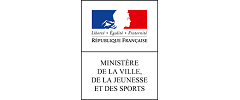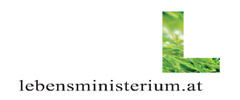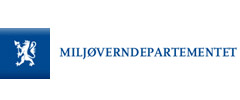"Rural drinking water supplies in Macedonia not safe due to improper management"
Water and Sanitation Safety Planning in rural Macedonia - Closing Conference on WECF Project
25.05.2015 |

Ms. Natasa Dokovska (JHR) and Ms. Biljana Shotarovska (contributor to the Ministry of Education) presenting the Compendium in Macedonian language
The closing conference was held on the 17th of April at the EU Info center in Skopje and addressed shared lessons learned from a 1,5 year DBU funded project “Water and Sanitation Safety Plans for environmental education in schools in rural areas in Macedonia and Romania“. 25 participants from different institutions and schools attended the event.
Results from the implemented project were presented as well as recommendations were formulated.
The moderator of the conference Mr. Filip Spirovski (JHR), welcomed the participants and introduced the topics of the conference. Ms. Bistra Mihaylova presented WECF work in the field of Water and Sanitation, as well as the Water Safety Plans concept and the implemented projects in Bulgaria and Moldova.
 Bistra Mihaylova (WECF) presenting the Water and Sanitation Safety plans concept and the implemented projects in Bulgaria and Moldova
Bistra Mihaylova (WECF) presenting the Water and Sanitation Safety plans concept and the implemented projects in Bulgaria and Moldova
Dr. Emil Krsteski, an independent human rights expert spoke about the Regulations of the European Union and the Convention related to water and human rights.
Ms. Snezana Milovanovik, Head of Microbiology Laboratory and Manager for quality at the Centre of Sanitary Control from the Public Enterprise for Water Supply and Sewerage– Skopje presented the following points which are related to the water and sanitation sector in Republic of Macedonia:
- This company takes care of 3 regions: Skopje, Veles and Kumanovo;
- Daily analysis of water quality in accredited laboratory are done;
- The staff has been educated two times per month;
Ms. Milovanovik underlined that the water in urban areas is of high quality, but in rural areas high percentage of the drinking water is not safe. She noted that in their laboratory they have been testing the water quality of a million and three hundred thousand inhabitants. 43 % of the rural areas have problem with unsafe drinking water supply. Similar is the case with the wells, fountains and springs, where malfunction of the water up to 60 % is registered. The main problem is lack of regular chlorination of the drinking water in rural areas, as well as problem with nonexisting protection zones - the microbiological structure is under the allowed norms.
Dr. Gulten Zeindeli, from the Institute of Public Health said that climate change has a negative impact on sources of fresh water. Current prospect shows the risks associated with fresh water which have been increased significantly with high emissions of greenhouse gases, aggravate the safety of regional water resources, energy and food. Combined with the increased water demands, enormous challenges for the management of water sources are observed.
In terms of sanitation in the Republic of Macedonia, the Institute for Public Health gives the following summary: From nearly 2 million residents in the country, 57% are in urban and 43% in rural areas. There is no existing wastewater treatment plant which could eliminate the wastewater pollutants before their discharge into water bodies. (Report on access to sanitation in Republic of Macedonia 2013).
Ms. Biljana Shotarovska, teacher at “Blaze Koneski” primary school in Skopje, also experienced contributor at the Ministry of Education, expressed her willingness that WSSP Compendium to be replicated in other schools in Macedonia. According to her this initiative can stаrt at the beginning of September 2015, when an application to the Ministry of Education can be presented. All the activities related to WSSP can be used by teachers and pupils in the process of preparing extra curricular activities. This would be a base for accepting the Compendium in regular classes. "Taking into account the high quality of this Compendium, I believe that many teachers will accept it. For the next school year, I will certainly use it, and if more teachers do it then success in regular classes will be guaranteed "- underlined Shotarovska.
Outcomes of the project implementation
Ms. Natasha Dokovska, coordinator of the project in Macedonia and Ms. Eleonora Antevska, teacher at “Simco Nasteski” primary school in the village of Vratnica presented the results of the implemented project in 5 schools in Vratnica and Arachinovo municipalities. Some of the results can be seen here

Unfortunately, as a result of the actual political situation in the country, the teachers from Arachinovo school could not participate at the conference due to strike and were only able to send their presentation.
 Representatives from Ministries, NGOs and schools in Macedonia who participated at the closing conference of the project “Water and Sanitation Safety Plans for environmental education in schools in rural areas“.
Representatives from Ministries, NGOs and schools in Macedonia who participated at the closing conference of the project “Water and Sanitation Safety Plans for environmental education in schools in rural areas“.
At the end of conference there was an exhibition with drawings made by children on the topic of water and its safety.
This activity was carried out in the frame of the project “Water and Sanitation Safety Plans for Environmental Education in Schools in Rural Areas of Macedonia and Romania”, funded by the German Environment Foundation DBU.
Contact:
Bistra Mihaylova
Related News
Together for sustainable sanitation and water security worldwide!
Stockholm, 26-31 Aug 2018: WECF participated in the World Water Week 2018 to further support the worldwide implementation of SDG 6
01.09.2018
National Round Table and Training on Drinking Water Issues and Priorities in Macedonia
Working Package 2 – Educational measures for responsible institutions and drafting of regulations, among the on-going project „Water and Sanitation Safety Planning in Romania, Albania, and FYR Macedonia”
27.07.2018
Training for Teachers on Water and Sanitation Safety Planning
Women in Development and WECF organise a 2-day workshop in Shkodra region, Albania
27.07.2018
Menstrual Hygiene Day 2018
Intersecting Menstrual Hygiene Management and the Sustainable Development Goals - an overview by WECF
28.05.2018
World Water Day 2018!
22.03.2018






































